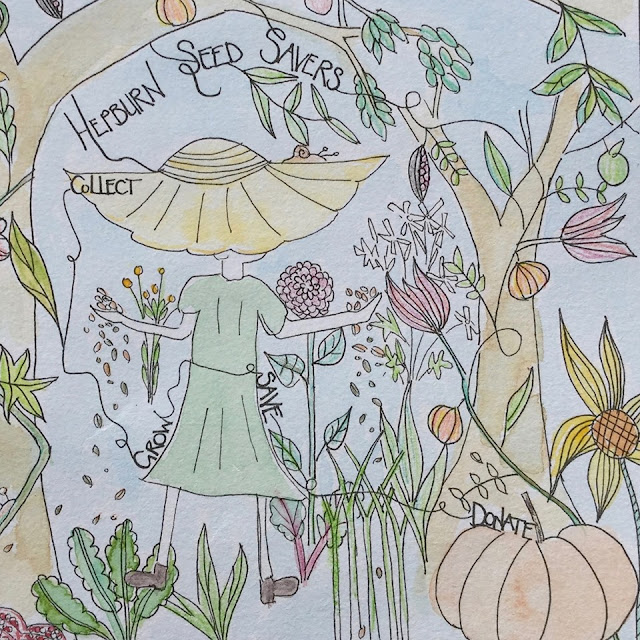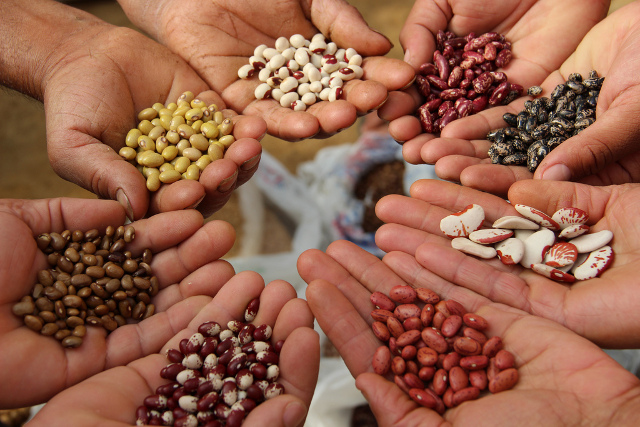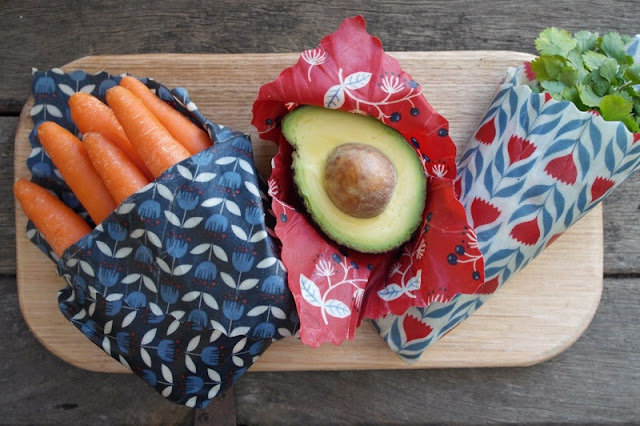Worldwide more than 1 billion people are members of cooperatives. Cooperatives provide 100 million jobs worldwide, 20% more than multinational enterprises. (1)
The commons asks us to think about the world in more organic, holistic and long term ways. We see that my personal unfolding depends upon the unfolding of others, and theirs upon mine. We see that we mutually affect and help each other as part of a larger holistic social organism….the myth of the self made man that market culture celebrates is absurd – a self congratulatory delusion that denies the critical role of family, community, networks, institutions and nature in making our world. (2)
…………………..
This November edition has information about:
- Workshop on Cooperatives– November 30th
- A weekly Farmers Market for Castlemaine
- Hearing Our Place with Andrew Skeoch
- Introducing Hepburn Seeds Savers
- Repair Cafe Achievements- 1 year for Daylesford, two years for Castlemaine and 10 years for the movement
- Moving Towards Hope Workshop
- Wild Fennel – Herbal knowledge
- Beeswax wrap making workshops– Daylesford
- Citizen Science Frog Project
- Let’s Talk Dyslexia – Hepburn Springs
- Cicada Story Slam – Daylesford
- Nature for Life Rally
- Victorian Government land being prepared for sale
- Sing for the Climate Flash Mob – Daylesford
- Water storages in central Victoria
- Culture Club – Daylesford
- The climate emergency – what has to be done?
- Birdlife Castlemaine – monthly bird walks
- Daylesford Show
- Daylesford Community Garden
- Commoners Co-op- Planetary survival workshop series
- A community newspaper for Daylesford
- Climate Pledge for Mt Alexander
- Going Local Festival- Call for Proposals
- Food for Thought- a local letter to ‘The Age’; Local Futures resources; and Natural Newstead Blog; Repairing our World- Callings from the Anima Mundi
Cooperation- a way of living for ourselves & the planet
Following on from the hearty community conversation in May on Cooperatives as alternative economic structures, Localising Leanganook is hosting a workshop to continue our discussion and drill more deeply into new and emerging cooperatives in central Victoria, cooperatives which respond to community and ecological needs.
What : An experiential workshop on Cooperatives- principles, benefits and challenges. Contribute towards three fledgling ventures.
When: Saturday November 30th 2019, 10am to 4pm
Where: Daylesford, Yandoit and Castlemaine
Organised by: Localising Leanganook
Cost: This is a free workshop
Registration essential: for catering and transport. Please register via email to nikki.marshall@mmnet.com.au to assist with transport (bus and car pooling) and catering. For further information contact Nikki Marshall (0432 232 073) or Vasko Drogriski (0407569105/ vaskod@icloud.com )
The November 30th workshop will visit three emerging cooperative ventures in central Victoria.
- First, the Goathand Cooperative– a community owned and managed shepherding cooperative operating in Daylesford which combines both goat browsing and grazing with manual handtool work as a powerful method to reduce dominant weed species and fuel loads in the steep gullies and common land around Daylesford and Hepburn.
- Second, a common land/farm cooperative on 50 acres of fertile land in Yandoit, where workloads, risks, learnings and experiences are shared, and where regenerative food growing practices are coupled with wildlife corridors. In the developmental stage, this co-op enables access to land for those locked out due to prohibitive costs.
- Third, a manufacturing cooperative in/around Castlemaine. In the initial exploration phase, this co-op will support local people, respond to current and future bio-regional needs, provide meaningful and local livelihoods, and produce goods in an ecologically regenerative way. Potential manufacturing initiatives include: soy milk; re-creating animal milk processing (a variation on the old butter factories);materials required for ecological living; and biochar.
Practicalities: The workshop will start in Daylesford (the forest at the end of Tierneys Lane- the way will be sign posted) with the Goathand Cooperative. Then we will move to Yandoit Farming Coop (Steeles Rd, Yandoit) and finally to Castlemaine to brain storming manufacturing possibilities, (gathering at the Ray Bradfield room). Wear comfortable shoes as there’ll be some walking involved.
Who: Dave Kerin from Earth Worker will share his extensive knowledge and experience with cooperatives, both theory and practice. Vasko Drogriski, along with the other members of the Goathand Cooperative, will share their story including benefits and challenges. Michael and Lisa Jackson, from Yandoit Farm, along with Nikki Marshall will share beginning work and imaginings for the Yandoit farm commons/coop. Localising Leanganook and interested central Victorians will share their thoughts about potential manufacturing co-ops for the area/bioregion.
Transport: Two 12 seater community buses are available to transport workshop attendees between Castlemaine, Daylesford and Yandoit, and car sharing is encouraged. Contributions to bus costs are requested.
Lunch and refreshments: BYO lunch and keep cup/water bottle. We will be eating lunch at Yandoit farm. A simple morning and afternoon tea will be provided.
A weekly Farmers Market for Castlemaine
When: Starting Wednesday November 6th, 3.30-6.30pm
Where: Between market building and RSL in central Castlemaine, near Victory Park
For more info: Castlemaine Weekly Farmers Market
The Farmers Market is collaborating with Harcourt Organic Farming Co-op to bring even more opportunities to buy directly from our local growers and producers. The market offers a weekly shop on Wednesday afternoon of fresh produce as well as collection of online orders. Priority is given to producers from within Mt Alexander Shire. Others from outside the shire are invited to ensure a broad range of fresh produce.
Hearing our place with Andrew Skeoch
When: 4.00 – 6.00 pm, Saturday 16 November. Afternoon tea from 3.30 pm.
Where: Campbells Creek Community Centre (45 Elizabeth St)
Organised by: Connecting Country
Cost: A free event
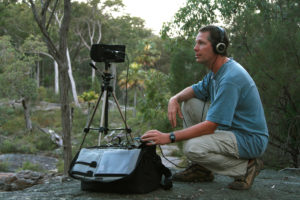
At Connecting Country’s AGM Andrew Skeoch will explore the crucial role of sound and communication in nature and evolution. Andrew is an educator, naturalist, environmental thinker and one of Australia’s best-known nature sound recordists. From his bush home near Newstead, he has journeyed over the last 25 years to remote locations in Asia, India, America, Europe, Africa and the Pacific in search of some of our planet’s most beautiful and fascinating sounds. Andrew weaves the latest scientific understandings into a fascinating celebration of the natural soundscape around us. His intriguing presentation will focus on our box ironbark birdsong and natural soundscapes, and will have you appreciating our local bushlands from an entirely fresh perspective.
RSVP: online (click here) by 13 November 2019 for catering purposes. If you have any questions, please email asha@connectingcountry.org.au or call (03) 5472 1594.
Introducing Hepburn Seeds Savers
“The smallest seed of faith is better than the largest fruit of happiness.” -Henry David Thoreau
How the Seed Library works:
- Borrowers check out the seeds, then
- Grow the seeds in their gardens
- Use the crops to provide food for their family + friends
- Allow some plants to mature (to produce viable seed)
- Save and dry the seeds
- Return the seeds to the library to be repackaged
- The beautiful cycle of life continues…
Ten years on for Repair Cafe movement, one year on for Daylesford & two years + for Castlemaine
Daylesford: 3rd Sunday of the month, 1-4pm at Victoria Park Pavilion
Castlemaine: last Sunday of the month , Castlemaine Town Hall, 10am to 1pm
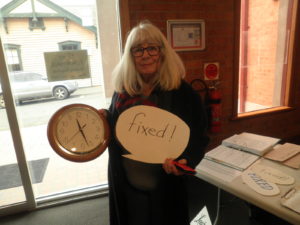
Daylesford Repair Cafe celebrated its first birthday in October. Over the past 12 months the Repair Cafe fixers and supporters have enabled 1019 kilograms to be kept out of land fill– that’s just over one tonne of material. In total 234 items were brought to the repair cafe during our first year. Knife, scissor and tool sharpening were priorities for many locals, coupled with mending of clothes, kitchen items, sound systems, household items such as heaters, lights and vacuum cleaners, as well as gardening tools. We’ve also repaired bicycles destined for landfill and made these available to low income kids and families.
Come and join the team…we can always do with more fixers and supporters as well as new skill sets such as shoe and boot repairers, jewellers, furniture and electrical repairers.
Contact: For Daylesford contact Nikki (nikki.marshall@mmnet.com.au or 0432 232 073). For Castlemaine contact Chris (chrishooper1050@gmail.com or 54705508 ).
Tenth anniversary of worldwide repair cafe movement
The week of 18th October was the 10th anniversary of the beginning of Repair Cafes in the Netherlands and now throughout the world There are over 1,653 worldwide and at least 10 in Victoria at last count. The very first Repair Café was held in Amsterdam, on October 18, 2009. It was a great success. . Since 2011, Repair Café Foundation has provided professional support to local groups in the Netherlands and other countries wishing to start their own Repair Café. All Repair Cafés in the world together prevented around 350,000 kilos of waste going to landfill in 2018.
We throw away vast amounts of stuff. Even things with almost nothing wrong, and which could get a new lease on life after a simple repair. The trouble is lots of people have forgotten that they can repair things themselves or they no longer know how. Knowing how to make repairs is a skill quickly lost. Society doesn’t always show much appreciation for the people who still have this practical knowledge, and against their will they are often left standing on the sidelines. The Repair Café changes all that! People who might otherwise be sidelined are getting involved again. Valuable practical knowledge is getting passed on. Things are being used for longer and don’t have to be thrown away.This reduces the volume of raw materials and energy needed to make new products. It cuts CO2 emissions, for example, because manufacturing new products and recycling old ones causes CO2 to be released.
The Repair Café teaches people to see their possessions in a new light. And, once again, to appreciate their value.
But most of all, the Repair Café just wants to show how much fun repairing things can be, and how easy it often is. Why don’t you give it a go?
Article prepared by Chris Hooper @ Castlemaine Repair Cafe
https://www.theglobeandmail.com/opinion/article-the-life-changing-magic-of-making-do
Moving Towards Hope Workshop
When: Sunday 10 November, 4.30-7pm
Where: Castlemaine Uniting Church, Lyttleton St, Castlemaine.
Cost: Gold coin donation
Organised by: Castlemaine Uniting Church
RSVP:Rev Sarah Tomilson: 0433 508 315; More information: Fay White: 044 7576 642
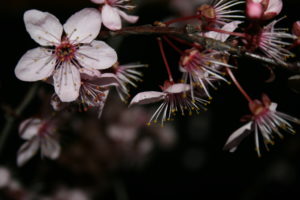
A workshop facilitated by Dr Susie Burke Environmental Psychologist and Therapist
This workshop is for anyone who is deeply concerned about the impacts of climate change on the things they love and care about, and who would like to explore with others how to come to terms with the climate crisis and stay engaged in solutions. The workshop will include a mixture of experiential exercises, pair and group discussions, and a bit of theory to help put the skills into context. A seasonal gathering offering of food for the soul.
Participants will learn techniques for making room for uncomfortable feelings, free themselves from self-defeating thoughts and urges, cultivate a perspective of active hope, and increase their capacity to be present and focus on what matters in the context of the climate emergency.
4.30pm – Drinks and nibbles
4.45pm – 6.15pm Workshop with Dr Susie Burke
6.15- 6.30 Closing ritual led by Rev Sarah Tomilson
6.30pm – 7pm Informal discussion
Wild Fennel – Herbal knowledge
When: Saturday November 16th, 9.30am to 12.30pm
Where: Daylesford Senior Citizens Centre, rear of Town Hall
A free gathering and everyone is welcome to attend.
Each month Wild Fennel looks at different aspects of herbal medicine and focuses on a particular plant, with the intention of reclaiming herbal medicine as an accessible mode of healthcare for ourselves and our community and bringing us into closer connection with the land and plants where we live.
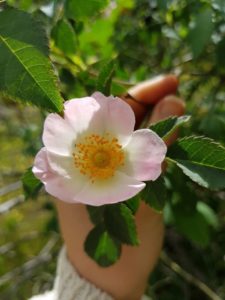
Wild Fennel is run by Rosie Cooper with the support of Hepburn Relocalisation Network.
Rosie is a herbalist with a love of plants and a desire to see the resurgence of grassroots folk herbalism in Australia. Rosie is based in Guildford, VIC and runs introductory herbal workshops through her business Rare Beauty Botanicals.
October’s Wild fennel focused on bitter plants and their importance for digestion, among many other benefits. For our November Wild Fennel meeting we’re going to delight our senses with the beauty of rose and other astringent plants of the Rosacea family (think hawthorn, peach, blackberry, etc). You might like to bring all of your roses, a notebook, herbs, seedlings, seeds or homemade remedies etc you would like to share or trade, and stories to share.
Beeswax wrap making workshops- Daylesford
Wrap sandwiches, half an avo, fresh bread, fruit, veggies or cheese. Cover a bowl, or pack a snack for your kids’ lunch boxes. Beeswax wraps are easy to make, washable, reusable and even compostable.
Citizen Science Frog Project
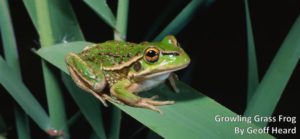 The Frogs Are Calling You is looking for help to investigate how frogs respond to water management throughout the region. Water is scarce for everyone including frogs and people. Water entitlements were introduced a few years ago to help balance the consumption of water by people with the needs of the environment. In order to maintain biodiversity in wetlands during dry times, water is pumped into natural wetlands to benefit animals and plants, and surveying undertaken to see how animals and plants respond to environmental watering. To join The Frogs Are Calling You project, sign up at www.frogscalling.org A collaboration between Frogs Victoria, DWELP, Australian museum, Catchment Management Authorities (North Central & Goulburn Broken) and University of Melbourne.
The Frogs Are Calling You is looking for help to investigate how frogs respond to water management throughout the region. Water is scarce for everyone including frogs and people. Water entitlements were introduced a few years ago to help balance the consumption of water by people with the needs of the environment. In order to maintain biodiversity in wetlands during dry times, water is pumped into natural wetlands to benefit animals and plants, and surveying undertaken to see how animals and plants respond to environmental watering. To join The Frogs Are Calling You project, sign up at www.frogscalling.org A collaboration between Frogs Victoria, DWELP, Australian museum, Catchment Management Authorities (North Central & Goulburn Broken) and University of Melbourne.
Let’s Talk Dyslexia event- Hepburn Springs
When:Tuesday, 19 November, 2019, 6.30 – 8.30pm
Where: Hepburn Primary School
Cicada Story Slam – Daylesford
When: Thursday November 21st, 7pm for a 7.15pm start
Where: Back bar, Daylesford Hotel
November is the grand finale of this year’s story slam. The theme is Traditions – yours, your families or communities . Simple or extravagant what do these traditions mean to you?
Listen to previous stories at: http://thecicada.com.au
Nature for Life Rally
🐢🐬🌱🐞🐝
When: Thursday 28 November, 12pm to 2pm
Where: Parliament steps, Spring St, Melbourne
Followed by: BYO picnic in Treasury Gardens
Organised by: Victorian National Parks Association
Join Victorian environment and community groups to demand better protection for our forests, rivers, beaches, oceans and wildlife. Bold action is needed to protect the places and wildlife we love – our National Parks, forests, rivers, beaches, oceans, native plants and animals.
As biodiversity continues to rapidly decline, habitats become more stressed, species become more threatened and the climate crisis escalates, we can’t waste any more time. Get together to show our community’s grave concern and urge for more action by the Andrews Government to address these urgent problems.
Let’s raise our voices to defend the places, plants and animals we love. https://www.eventbrite.com.au/e/nature-for-life-rally-tickets-76189852901?
Victorian Government land being prepared for sale
Victorian government land for sale includes local land in Mt Alexander, Hepburn, and Macedon Ranges Shires as well as the cities of Ballarat and Bendigo. Some of this land could be useful for community housing and other initiatives.
https://www.dtf.vic.gov.au/government-land-sales/land-being-prepared-future-sale
Sing for the Climate Flash Mob in Daylesford
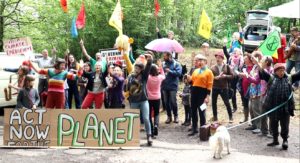
It’s easy to learn the song so lots of community flash mob singing events can be happening.
Song for the Climate
We need to wake up, We need to wise up
We need to open our eyes, And do it now now now
We need to build a better future
And we need to start right now
We’re on a planet that has a problem
We’ve got to solve it, get involved, And do it now now now
Make it greener, Make it cleaner
Make it last, make it fast, and do it now now now
No point in waiting, or hesitating,
We must get wise, take no more lies, and do it now now now
Water Storages in central Victoria
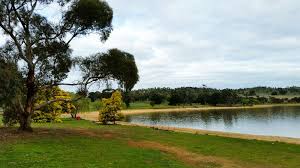
North Central Catchment Management Authority advise the following storage levels at October 23rd, 2019:
- Cairn Curran Reservoir – 53%
- Tullaroop Reservoir – 84%
- Laanecoorie Reservoir – 52%
- Newlyn Reservoir – 100%
- Hepburns lagoon – 99%
- Upper Coliban Reservoir – 98%
- Lauristion Reservoir – 97%
- Malmsbury Reservoir – 75%
Culture Club- Daylesford
When: Saturday 7th December, 9.30am – 11.30am
Where: Senior Citizen’s Hall (rear Daylesford Town Hall)
December theme: An end of year jar swap
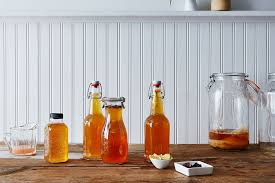
November Culture club focused on wild fermented drinks.
The climate emergency – what has to be done?
When : Thursday 14th November 2019, 6.30pm – 8.30pm
Where: Senior Citizens Centre, Mechanics Lane, Castlemaine
As part of their AGM Mt Alexander Sustainability Group (MASG) invites locals to contribute to a discussion about what has to be done in the shire. MASG acknowledges the climate crisis and the need for drastic action to avoid tipping points and unacceptable change to the planet. Committee members will outline the concept of zero net emissions, the major sources of emissions, and pathways to reduce these. Input and action from members and supporters is vital.
Dinner available at affordable prices, vegetarian, vegan and gluten free options available. Drinks available at bar prices.
RSVP : by November 11th for catering purposes – info@masg.org.au or 03 5470 6978
Birdlife Castlemaine – monthly bird walks
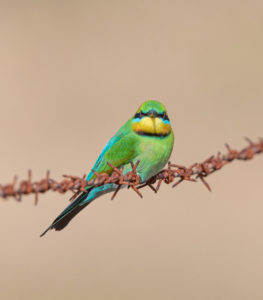
Castlemaine District is one of BirdLife’s newest branches, formed in 2018. This Central Victorian Branch has superb birding, enthusiastic people, many thriving and unique native habitats, and a long history of bird surveys to monitor the region’s Box-Ironbark woodlands. The area boasts several Key Biodiversity Areas and many birding hot spots such as Rise and Shine Reserve located between Daylesford and Newstead. Over 200 species have been recorded in the Mt Alexander region, including Brown Treecreeper, Diamond Firetail,
Bird-walks are held on the first Saturday morning of the month. All ages and birding abilities are welcome. If you’d like to learn how to record your bird lists using Birdata, or brush up on your survey skills, we aim to do at least one survey each bird walk. Powerful and Barking Owl, Hooded Robin and some cryptic species such as Speckled Warbler and Painted Button Quail.
(Photo- Rainbow bee-eater at Newstead – Geoff Parks)
For more information: castlemaine@birdlife.org.au
Daylesford Show
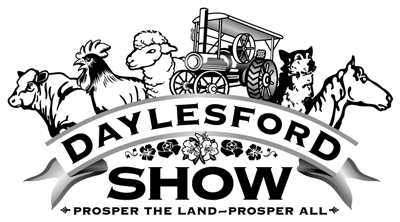
When: Saturday November 23rd
Daylesford Community Garden
Come and spend time in this beautiful and productive community garden. Join the working bee at the community garden next to Daylesford library.
When: Saturday November 9th, 10am to 12 noon (always the second Saturday of the month)
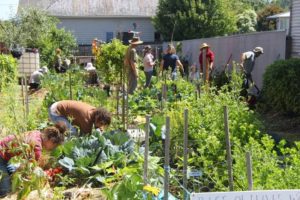
For more information: https://www.facebook.com/daylesfordcommunityfoodgardens/
Commoners Co-op- Planetary survival workshop series
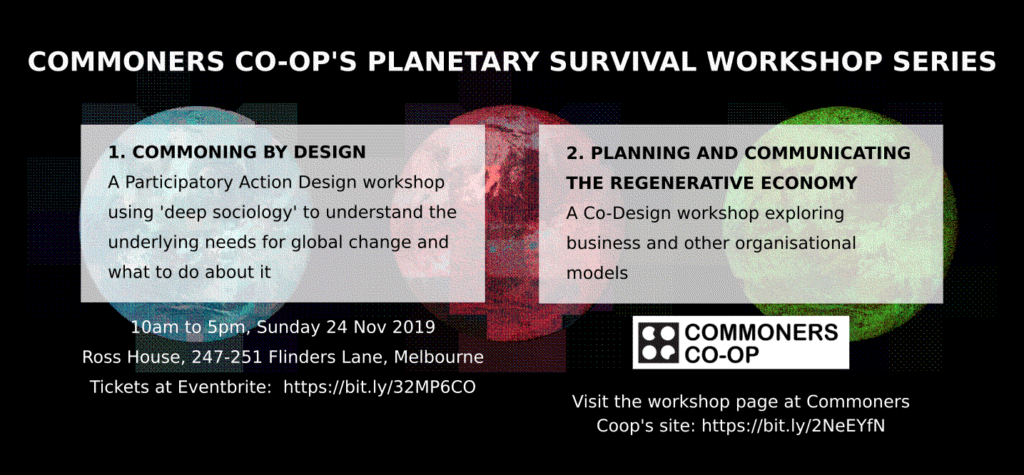
A community newspaper for Daylesford
A public meeting – Thursday 14 November at 7.00 pm at Daylesford Neighbourhood Centre.
The proposed Community News does not aim to compete with existing publications
– the Advocate or the Local, or the Daylesford Grapevine – but rather, aims to share
information about community happenings, regular gatherings, one off events, sporting
results, information about local organisations’ activities, and local services available in
Daylesford and Hepburn Springs – information that contributes to the fabric of the
community, and which is currently not always readily available.
The public meeting will consider the responses from the community to the Proposal, and if supported, will establish a community association to establish and run the Community News.
Let us know your views and suggestions. You can send in comments by email to Cr Kate Redwood at
kredwood@hepburn.vic.gov.au . All written comments sent to Kate will be reported to the
public meeting on 14 November. You are most welcome to attend the meeting and have your say.
Climate Pledge for Mt Alexander
Mount Alexander Climate Emergency Team asks community members to keep the momentum up by taking these two actions:
CLIMATE PLEDGE
The Pledge which has now been linked to our campaign. We feel that making a personal pledge (in addition to asking council to act) can play an important role in showing our councillors and community that we are willing to take necessary actions on an individual and community level to help combat climate change.
Sign the pledge here.
CONTACT YOUR COUNCILLOR
It’s beneficial for Mount Alexander Shire councillors to hear directly what meaningful climate action means to you, and why you support the council to Declare a Climate Emergency. Consider booking a time to have a courteous and respectful face-to-face discussion with your local ward councillor about the issue of climate change and the Climate Emergency Declaration. Writing to councillors is also a good option.
Talking points for this discussion could be:
1. Share your personal concerns about climate change.
2. Explain why you think this issue now requires an emergency response from Council – you could refer to points made in the ‘Climate Emergency Declaration’ sheet and ‘What is a Climate Emergency Declaration?’ found here.
3. Ask the Councillor what they think about climate change and listen carefully.
4. Ask if they will support the community request for Mount Alexander to declare a climate emergency when it comes before Council.
.You can find the contact details of each councillor here. Include your own contact details in written correspondence to councillors.
Going Local Festival- Call for Proposals
When: March 27,28 and 29, 2020
Where: Byron Bay
Organised by: Local Futures and New Economy Network of Australia

How can we work together to create a fundamentally different economic system and a more beautiful world? Today, as we face a seemingly endless series of crises, it is easy to feel overwhelmed. But seeing how our problems–from climate change to our personal well-being–are fundamentally linked to our economic system can be deeply empowering. Decades of failure by governments to adopt a big picture approach to the future have led to down-stream solutions, self-blame and epidemics of depression and anxiety. However, in recent years, many individuals and organizations involved in separate campaigns have begun to collaborate and embrace a holistic approach that moves beyond single issues. A big picture,broad analysis is beginning to build a broad, united movement for fundamental change. We owe it to ourselves and our children to join this movement for systemic change.
The goal of this 3-day ideas festival is to explore and explain how we can shift direction—from a single globalized market towards economies that support renewal, resilience and greater human and planetary well-being. This gathering will emphasize the systemic root cause of our many interconnected ecological, social and economic crises, and identify key strategic shifts towards economic localization that can solve them. From food, land, water and human settlements, to businesses, knowledge systems, innovation, production and consumption, this ideas festival focuses on translating understanding into action.
Festival Themes
Within this context, the 2020 Conference has three key themes:
1. Understanding the dominant economic system and global market and its impact on democracy and local economies
2. Showcasing and amplifying strategies for reclaiming local economies for the benefit of people and planet
3. Stories of success – challenging corporate domination of national, regional and local economies
Call for Proposals open until 10 December 2019. We invite all prospective participants to be creative with your proposals and proposals that will be considered include: academic papers, interactive workshops, discussion groups and experiential activities. Although we have invited some speakers in advance, the final program will depend upon what you submit. Go to https://www.neweconomy.org.au/symposia/going-local/
Food for Thought
A letter from Castlemaine climate activist Trevor Scott published in The Age– November 4th, 2019
“You reported recently (PM vow to ban protestors 2/11/19) that Scott Morrison was working on legal measures to outlaw “the indulgent and selfish practices” of protest groups who tried to stop major resources projects. Clearly, he is referring to the construction of large coal mines such as Adani.
I think that our PM has got it wrong. The work done by individuals in these groups is selfless: they are willing to put themselves at risk for the lives of their children and future generations. The risk of damage to the Planet from Climate Change is far greater than the risks that these groups pose to “Big Coal” and companies that assist in the building of coal mines.”
Note: Central Vic Climate Action’s letter writing group meets on the 2nd and 4th Friday of the month at the North Kitchen, Castlemaine
…………………..
Naomi Klein, in her book The Shock Doctrine, quotes economist Milton Friedman, who wrote:
“Only a crisis—actual or perceived—produces real change. When that crisis occurs, the actions that are taken depend on the ideas that are lying around. That, I believe, is our basic function: to develop alternatives to existing policies, to keep them alive and available until the politically impossible becomes the politically inevitable.”
……………………..
Local Futures has a range of localisation resources and articles on their website including:
Report– Climate Change or System Change? Prepared as a response to the Paris Climate Agreement, this well-referenced report describes the opportunities that negotiators missed by ignoring the links between climate change and economic globalization. Topics include: how corporate think tanks have shifted the blame for climate change onto individuals; how globalization promotes unnecessary trade, consumption, and urbanization; and how localizing our economies can lead to much smaller carbon footprints. Read the report here.
Step Aside, Agribusiness: Giant food corporations have tried hard to ‘greenwash’ their role in propelling runaway climate change, but nothing can disguise the burning forests of Brazil, the soaring carbon emissions of factory farms, or the palm oil monocultures of the tropics. If governments want to take steps to stave off planetary collapse, they should stop subsidizing big food corporations and shift that support to small food producers and local markets. Read more.
What is ‘Energy Denial’?: The slogan of the first Earth Day in 1970 was ‘Reduce, Reuse, Recycle’. Since then, the ‘Reduce’ part of the equation has slowly fallen out of fashion, particularly when it comes to energy consumption. But as we transition from fossil fuels to renewables, reducing our energy use will be critically important. Read more.
Land Without Bread: Governments’ climate action plans – including the ‘Green New Deal’ – must do more to protect farmland from development, consolidation, and land grabbing. Supporting small farmers is key to both stopping climate chaos and creating healthy rural communities. Read more.
Planet Local is a growing library of grassroots localization initiatives, a glimpse at some of the inspiring groups fighting for the future of people and the planet. Our newest additions to the library include projects focused on climate change, renewable energy, and environmental education. We hope they inspire you to join or start similar projects in your community!
- Samsø (Denmark) is the world’s first island powered by 100% local, renewable energy. More than half of the island’s 21 wind turbines are owned by local farmers, and three of the island’s four heating plants run on leftover barley straw purchased from the island’s farmers, while the fourth uses local woodchips and a solar hot water system.
- Snowchange Cooperative (Finland) relies on the traditional knowledge of Sámi fishing and herding communities to assess the regional impacts of climate change and industrial activity, and to develop management plans for rivers, lakes, wetlands, and watersheds.
- The Heschel Sustainability Center (Israel) set up a network of ‘green’ schools that teach environmental stewardship and activism, including setting up composting systems and school gardens and planning environmental awareness campaigns.
Local is Our Future: Charting a Course Away from Climate Chaos- Helena Norberg-Hodge’s groundbreaking new book, Local is Our Future, is a must-read for climate activists. Deconstructing the notion that corporate power, globalization, and economic growth are essential features of human societies, Helena shows how economic localization can solve the many crises facing us, including climate change.
……………………
From Geoff Parks’ Natural Newstead blog:
I’m an avid reader of the Guardian – I suspect quite a few blog readers share my enthusiasm.
Earlier in the week an article [originally published in The Conversation] with the troubling title ‘Australia’s beloved native birds are disappearing – and the cause is clear’, easily caught my attention.
The story summarises some recent work, by a group of highly respected researchers from the University of Queensland, on how habitat loss has affected multiple Australian bird species. The research team have developed a measure, the loss index (sounds somewhat innocent but its not!), to communicate how long-term, incremental loss of native vegetation is impacting on Australian birds – not just the rare and charismatic species, but also those (such as the Rufous Songlark and Rainbow Bee-eater pictured below) that don’t quite make it to the threatened species lists. Reading the article left me feeling deeply troubled …
… across Victoria, and into South Australia and New South Wales, more than 60% of 262 native birds have each lost more than half of their original natural habitat. The vast majority of these species are not formally recognised as being threatened with extinction
… not just because of the alarming record of insidious loss, but because it reinforces the personal (and often long-term) observations of local birders, naturalists, farmers and other landholders across the landscapes of Australia, about what exactly is going on with our unique biodiversity. I would urge you all to read the article and ponder, like I am at present, about what more we can do.
…………………………..
Life artistry centre newsletter-Repairing Our World: Callings from the Anima Mundi
https://mailchi.mp/07e4d7b3f89c/life-artistry-centre-news-winter-1722685?e=f1af13b6e3
…………………………..

![[ Random Image ]](https://leanganook.org/images/image_15.jpeg)
